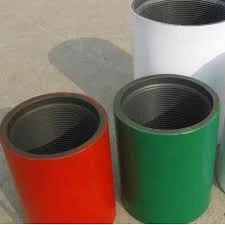- Afrikaans
- Albanian
- Amharic
- Arabic
- Armenian
- Azerbaijani
- Basque
- Belarusian
- Bengali
- Bosnian
- Bulgarian
- Catalan
- Cebuano
- Corsican
- Croatian
- Czech
- Danish
- Dutch
- English
- Esperanto
- Estonian
- Finnish
- French
- Frisian
- Galician
- Georgian
- German
- Greek
- Gujarati
- Haitian Creole
- hausa
- hawaiian
- Hebrew
- Hindi
- Miao
- Hungarian
- Icelandic
- igbo
- Indonesian
- irish
- Italian
- Japanese
- Javanese
- Kannada
- kazakh
- Khmer
- Rwandese
- Korean
- Kurdish
- Kyrgyz
- Lao
- Latin
- Latvian
- Lithuanian
- Luxembourgish
- Macedonian
- Malgashi
- Malay
- Malayalam
- Maltese
- Maori
- Marathi
- Mongolian
- Myanmar
- Nepali
- Norwegian
- Norwegian
- Occitan
- Pashto
- Persian
- Polish
- Portuguese
- Punjabi
- Romanian
- Russian
- Samoan
- Scottish Gaelic
- Serbian
- Sesotho
- Shona
- Sindhi
- Sinhala
- Slovak
- Slovenian
- Somali
- Spanish
- Sundanese
- Swahili
- Swedish
- Tagalog
- Tajik
- Tamil
- Tatar
- Telugu
- Thai
- Turkish
- Turkmen
- Ukrainian
- Urdu
- Uighur
- Uzbek
- Vietnamese
- Welsh
- Bantu
- Yiddish
- Yoruba
- Zulu
API 5CT Casing Coupling Specifications and Applications in Oil and Gas Industry
Understanding API 5CT Casing Couplings A Crucial Component in Oil and Gas Operations
In the oil and gas industry, the efficiency and safety of drilling operations are imperative for successful exploration and production. One critical component that plays a significant role in these operations is the casing coupling, particularly those that adhere to the American Petroleum Institute (API) specifications, specifically API 5CT.
What is API 5CT?
API 5CT is a specification developed by the American Petroleum Institute that outlines the requirements for casing and tubing used in the oil and gas industry. It is designed to ensure that the materials used in drilling operations have the mechanical properties and corrosion resistance needed for various geological conditions. The specification covers steel grades, dimensions, and threading, ensuring reliability and safety in drilling environments.
Casing itself is a series of steel pipes that are installed in a wellbore to provide support, protect the well against external pressures, and prevent the escape of fluids. Casing couplings are essential components that connect the individual sections of casing, ensuring that the entire assembly functions effectively as a single unit.
The Role of Casing Couplings
Casing couplings serve several important functions in drilling operations
1. Connection The primary function of a casing coupling is to connect two lengths of casing together. These couplings are designed with precision threading to ensure a tight, secure fit that can withstand the harsh conditions found in oil and gas wells.
2. Load Distribution Couplings help distribute the load along the casing string, preventing localized stress that could lead to failure. This is especially important in high-pressure wells where the stakes are high.
3. Pressure Seal Casing couplings must provide a reliable seal to prevent the escape of fluids and gases. This is essential not only for operational efficiency but also for safety, as leaks can lead to environmental disasters.
4. Corrosion Resistance Given the corrosive nature of many well environments, casing couplings must be made from materials that resist corrosion. API 5CT specifies specific coatings and treatments to enhance the longevity and durability of these couplings.
api 5ct casing coupling

5. Ease of Installation Casing couplings are designed for easy installation, allowing for quick and efficient assembly of the casing string. This reduces downtime during drilling operations and contributes to overall productivity.
Types of API 5CT Couplings
API 5CT specifies several types of couplings, each suited for different applications. They can vary in size, length, and thread type based on the specific requirements of the well being drilled. Here are a few common types
- Regular Couplings These are standard couplings that connect sections of casing and tubing of the same nominal size. - Short Couplings Short couplings are employed when space is limited or when a tighter fit is needed in the casing assembly.
- Long Couplings These are used when additional length is required for a more extended connection, typically in deeper wells.
- Specialty Couplings For specific applications where standard couplings might not suffice, specialty couplings can be manufactured to meet unique engineering demands.
Standards and Quality Assurance
API 5CT emphasizes the importance of quality and standardization in the manufacturing of casing couplings. All producers must adhere to strict quality control measures to ensure that each coupling meets not only API specifications but also the operational needs of clients. This includes rigorous testing for tensile strength, impact resistance, and corrosion resistance.
Conclusion
API 5CT casing couplings are fundamental to successful drilling operations in the oil and gas industry. Their critical roles in ensuring connections, distributing loads, providing seals, resisting corrosion, and facilitating installation underpin the entire integrity of the well. As the industry evolves with advancements in technology and increasing environmental concerns, the importance of these components will only continue to grow, ensuring that operations remain safe and efficient. The adherence to API standards will keep driving innovations and best practices within the industry, reinforcing the essential role of casing couplings in the quest for energy resources.
-
Tubing Pup Joints: Essential Components for Oil and Gas OperationsNewsJul.10,2025
-
Pup Joints: Essential Components for Reliable Drilling OperationsNewsJul.10,2025
-
Pipe Couplings: Connecting Your World EfficientlyNewsJul.10,2025
-
Mastering Oilfield Operations with Quality Tubing and CasingNewsJul.10,2025
-
High-Quality Casing Couplings for Every NeedNewsJul.10,2025
-
Boost Your Drilling Efficiency with Premium Crossover Tools & Seating NipplesNewsJul.10,2025







